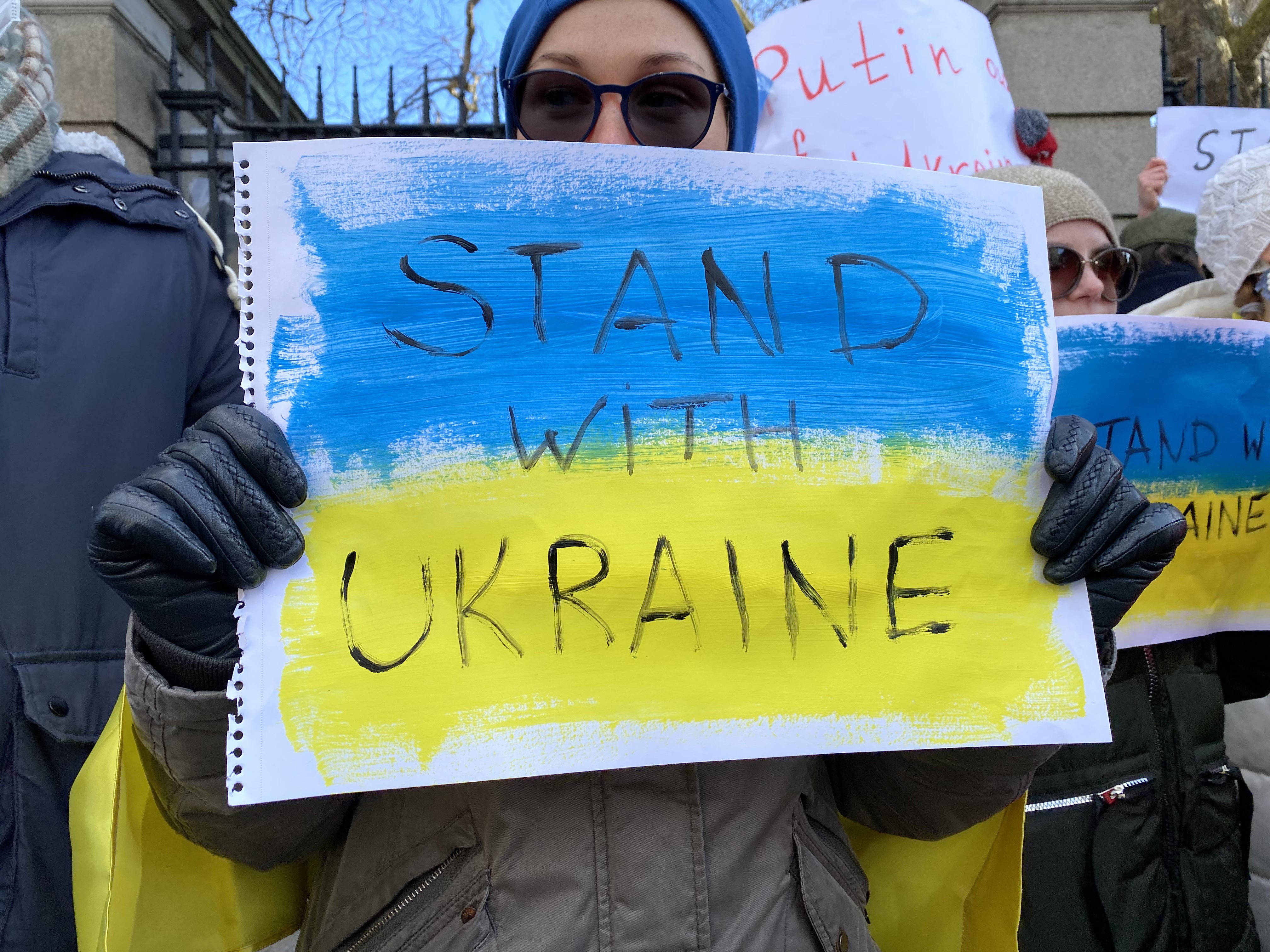Details of Boris Johnson’s ‘largest and most severe’ sanctions against Russia
The package includes an intention to impose an asset freeze on all major Russian banks.

Your support helps us to tell the story
From reproductive rights to climate change to Big Tech, The Independent is on the ground when the story is developing. Whether it's investigating the financials of Elon Musk's pro-Trump PAC or producing our latest documentary, 'The A Word', which shines a light on the American women fighting for reproductive rights, we know how important it is to parse out the facts from the messaging.
At such a critical moment in US history, we need reporters on the ground. Your donation allows us to keep sending journalists to speak to both sides of the story.
The Independent is trusted by Americans across the entire political spectrum. And unlike many other quality news outlets, we choose not to lock Americans out of our reporting and analysis with paywalls. We believe quality journalism should be available to everyone, paid for by those who can afford it.
Your support makes all the difference.Boris Johnson has announced the “largest and most severe package of economic sanctions that Russia has ever seen” as he seeks to pile pressure on Vladimir Putin and cripple Moscow’s economy.
They will block Aeroflot from landing flights in the UK, and hit more than 100 business and individuals as Britain seeks to cripple Russian banks’ access to London’s financial institutions and curtail oligarchs luxury lifestyles in the capital.
“They come to Harrods to shop, they stay in our best hotels when they like, they send their children to our best public schools, and that is what’s being stopped,” a diplomatic source said.
“So that these people are essentially persona non grata in every major western European capital in the world. That really bites.”
The package in response to the invasion of Ukraine is understood to include the following measures:
– An intention to impose asset freezes on all major Russian banks, including immediately against VTB, the second largest bank with assets totalling £154 billion.
– Legislation to be introduced and come into force on Tuesday to prohibit the ability of all major Russian companies to raise finance on the UK markets and to ban the Russian state from raising sovereign debt on the UK markets.
– Individual sanctions against more than 100 individuals, entities and subsidiaries including Rostec, Russia’s biggest defence company said to employ more than two million people with exports of more than £10 billion of arms each year.
The Tactical Missile Corporation, which supplies air and sea missiles, was also hit, as was Uralvagonzavod, one of the world’s largest tank manufacturers.
– Sanctioning five more oligarchs thought to be particularly close to the Kremlin:
Kirill Shamalov, at 39 he is Russia’s youngest billionaire and is the former husband of Mr Putin’s daughter Katerina Tikhonova.
Pyotr Fradkov, the 43-year-old head of sanctioned Promsvyazbank, which finances Russian defence industries. He is the son of Mikhail Fradkov, a former prime minister of Russia who was chief of its foreign intelligence service.
Denis Bortnikov, the 47-year-old deputy president of government-affiliated VTB bank, for benefiting from or supporting the Kremlin. His father Alexander Bortnikov is head of the Federal Security Service (FSB).
Yury Slyusar, 47, the director of United Aircraft Corporation, one of the major defence organisations which is also being sanctioned.
Elena Georgieva, 45, the chairwoman of the board of Novikombank, a state-owned defence conglomerate that bankrolls Rostec.
Officials were considering more elites to be hit with punitive measures in the weeks to come.
– Imminently banning Aeroflot aircraft from landing in the UK.
– With immediate effect, suspending and prohibiting all dual-use export licences to Russia on items that could have citizen or military use, such as electrical components that could be used in military or civilian computers, or parts of trucks.
– Within days introducing legislation prohibiting a wide range of hi-tech exports to Russia and for the oil industry. This would entirely align with the approach from the US, including semiconductors and aircraft spare parts, such as Rolls Royce engines.
– To introduce legislation that will limit the amount of deposits wealthy Russian nationals could hold in UK bank accounts at £50,000. It is part of a plan to end access of the Russian banking sector to British economy as far as possible.
– Work with allies to limit Russian access to the Swift payment system, which will need be done in conjunction with G7 and Nato allies.
The Prime Minister’s official spokesman said: “There are a range of views of it and we recognise it is a challenge.
“Certainly it is the Prime Minister’s intention – he thinks it is the right thing to do.”
– Extend the full range of sanctions against Russia to Belarus, given its cooperation with Moscow.
– Bring forward measures intended for the Economic Crime Bill to before Easter.
Mr Johnson’s spokesman said: “Before Easter recess we will bring forward legislation previously intended for the Economic Crime Bill to strengthen unexplained wealth orders to take action against kleptocrats that launder funds in the UK.”